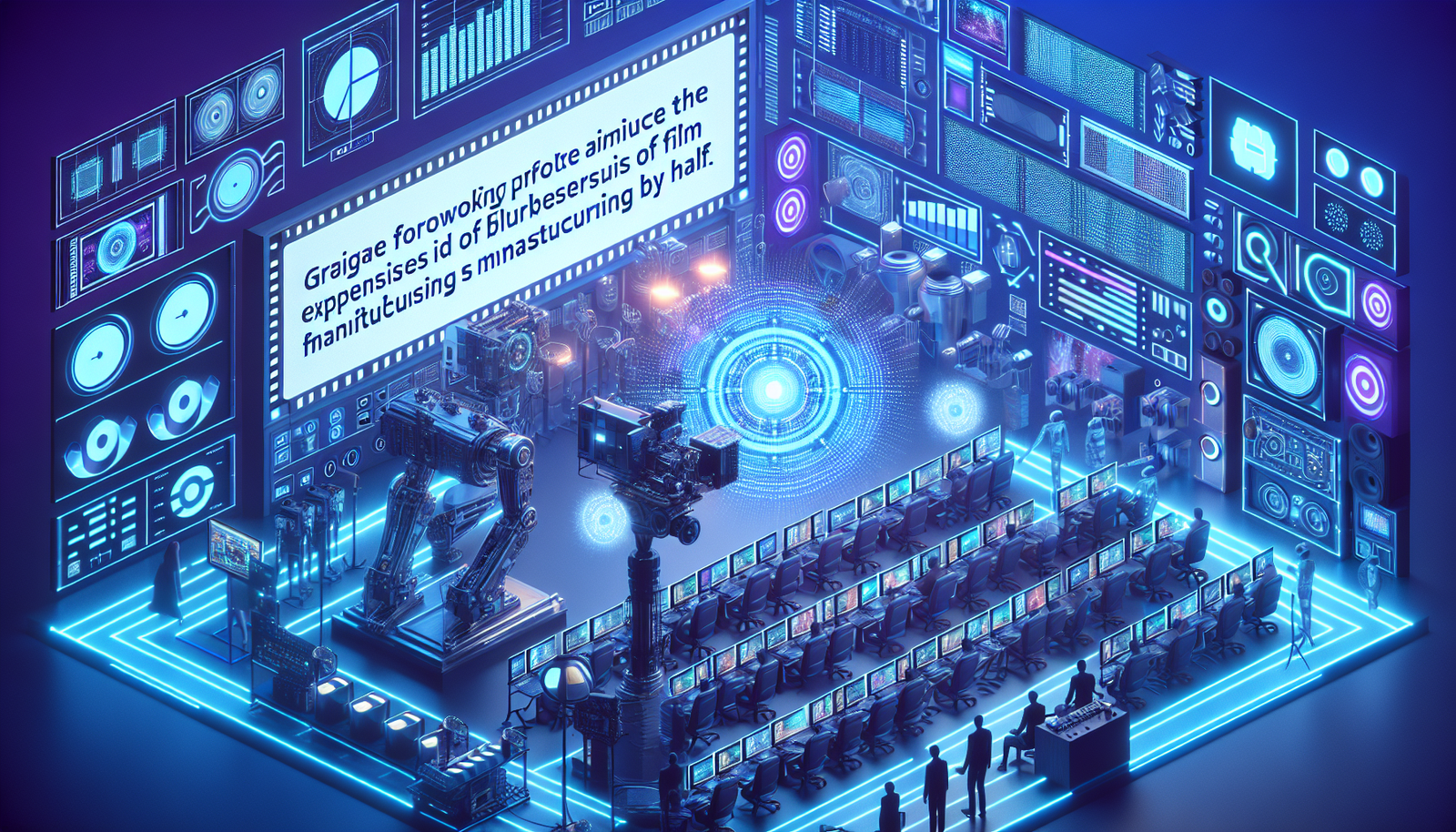The director James Cameron’s reflection on the exorbitant costs of successful films questions the future of Hollywood. The growing use of artificial intelligence could be a relevant solution to streamline budgets. In order to cut special effects spending by half, a new paradigm seems inevitable. Cameron advocates for a subtle integration of AI into the creative process, thus challenging the established conventions of the film industry. This debate raises essential questions about the ethics of data usage and the recognition of artists.
James Cameron and the Future of Blockbuster Films
During his appearance on Meta’s “Boz to the Future” podcast, James Cameron expressed his bold vision regarding the future of Hollywood blockbusters. According to him, it is imperative to cut costs associated with special effects-laden productions by half. This perspective calls into question traditional filmmaking methods, while projecting artificial intelligence as a potential solution.
The Necessity of Cost Reduction
Current film productions face reduced budgets in response to various economic factors. Cameron noted that studios are decreasing the volume of content produced, and the box office is facing difficulties. He specifies that the solution does not lie in massive layoffs within teams, but rather in improving artists’ productivity.
The Impact of Artificial Intelligence
The new era of artificial intelligence could transform the way special effects are created. Cameron expressed optimism about this technology, highlighting its potential to alleviate financial pressure on studios. He envisions an integration of AI into VFX workflows, thereby potentially doubling production speed.
Cameron and the Controversies over Copyright
Concerns surrounding the use of others’ works to train AI models persist, particularly in the artistic community. Cameron highlighted ongoing debates concerning intellectual property and the legitimacy of training materials for these models. His position on this subject is nuanced, being both an artist and now a board member of Stability AI.
An Uncertain Future for Cinema
The director also addresses the inherent challenges of assembling training data for AI models, emphasizing the need for clear regulation. His rich exchanges with developers aim to better understand this technology, as well as the possibilities it offers. Cameron hopes that all artists are recognized as full-fledged models, advocating that each creator brings an indispensable uniqueness.
Toward a Transformation of the Hollywood Landscape
In light of evolving technologies, questions remain about the future of cinema and the choices that will be made by studios. The adoption of AI tools could influence not only production but also the way narratives are crafted. Cameron believes that innovation will be at the heart of the transformation of cinematic practices, determining the success of the next generation of films.
Companies like Amazon and Google are also investing in AI to improve their processes and reduce costs, thereby affirming the direction the industry could take in the short term.
Cameron, as a pioneer in the industry, continues to voice his opinions on these crucial issues, pushing the boundaries of contemporary filmmaking. The path he advocates could very well redefine the standards of production in Hollywood.
FAQ on the Impact of AI on the Cost of Blockbuster Films According to James Cameron
What is James Cameron’s position on the use of AI in filmmaking?
James Cameron believes that AI can help reduce the production costs of heavy special effects films, thus offering an opportunity to make the filmmaking process more efficient.
How does James Cameron envisage reducing film costs with AI?
He suggests that AI could increase the completion speed of visual effects, allowing artists to work more quickly and focus on other projects, which would ultimately reduce overall costs.
What are the challenges related to integrating AI into cinema?
Challenges include concerns about using copyrighted materials to train AI models and the need to ensure adequate recognition of traditional artistic contributions.
How have film budgets changed recently?
Hollywood budgets have decreased due to reduced demand for content and poor box office performance, making it essential for producers to find solutions to cut costs.
What are artists’ opinions on the use of AI in cinema?
Opinions are divided, with some artists supporting the use of AI to innovate and reduce costs, while others express concerns about protecting their work and copyright.
How does James Cameron plan to address the ethical questions surrounding the use of AI?
Cameron emphasizes the importance of discussing concerns related to intellectual property and understanding the perspective of AI developers to avoid conflicts in the film industry.
Does James Cameron think AI could replace some creative tasks in cinema?
No, Cameron argues that while AI can assist in certain technical aspects, human creative input remains essential and cannot be replaced.
What is the importance of collaboration between artists and technologists in this context?
Cameron stresses the necessity of collaboration between artists and technicians to ensure that AI is used responsibly and beneficially for the film industry.






